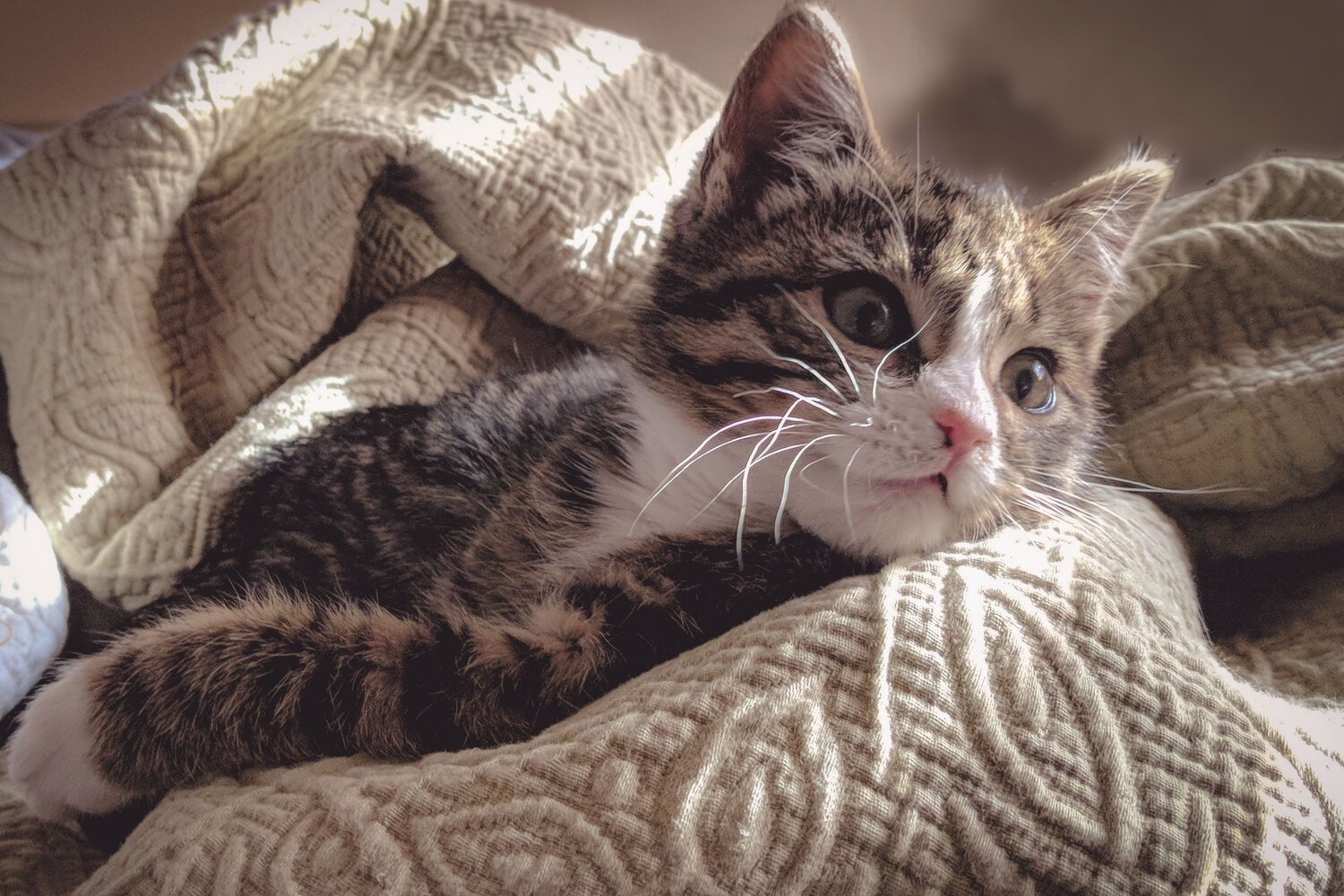
CAT NUTRITION
How to Best Nourish Your Feline for Optimal Health and Happiness

How can I tell if my cat is getting adequate nutrition?
A healthy and well-nourished cat will have a shiny coat, clear eyes, stable weight, and minimal dander. Another key indicator that something has gone wrong is if your cat is vomiting or passing hairballs with any regularity. Frequent vomiting in cats is not normal. Regular veterinary check-ups can also help ensure your cat is thriving nutritionally.
Will my cat's nutrition requirements change throughout their life?
Yes, a cat's nutritional needs evolve with age. Kittens, adults, and seniors have distinct dietary requirements. Kittens should be fed kitten food for growth. When they're full-grown, transition onto an adult maintenance diet, and then later in life, base their nutrition on what is going on in their bodies.Your veterinarian can guide you on providing the right nutrition at each life stage.
How does my cat's nutrition impact their health?
Similarly to humans, what cats eat affects absolutely every part of their health. This said, we want to make sure we feed our pets as high quality food as we can find, and understand that their hair coat quality, intestinal health, heart health, and brain health are all related to nutrition.
What are some of the top cat food myths?
There are many myths about cat food, just like there are many myths about our nutrition. Some common cat nutrition myths that we are keen to dispel are:
Myth: Cats should have milk.
Myth: A solely dry food diet is best.
Myth: Cats can eat dog food without issue.
Myth: Cats can regulate their food intake perfectly.
FAQ
-
Both wet and dry foods have their merits. Wet food can help with hydration, while dry food contributes to dental health. A balanced combination often works well.
-
Cats are obligate carnivores, and a vegan diet tends to lack the essential nutrients they need. We would not recommend that you feed either a vegan or a vegetarian diet to a cat unless there is a medical reason to do so, and your veterinarian has recommended that.
-
Free-choice feeding can easily lead to overeating. Controlled portions and scheduled feeding times help maintain a healthy weight.
-
Feeding your cat human food should be limited to cat-safe options. Excessive treats and fatty foods can contribute to weight issues. Stick to a balanced cat diet for optimal health.
